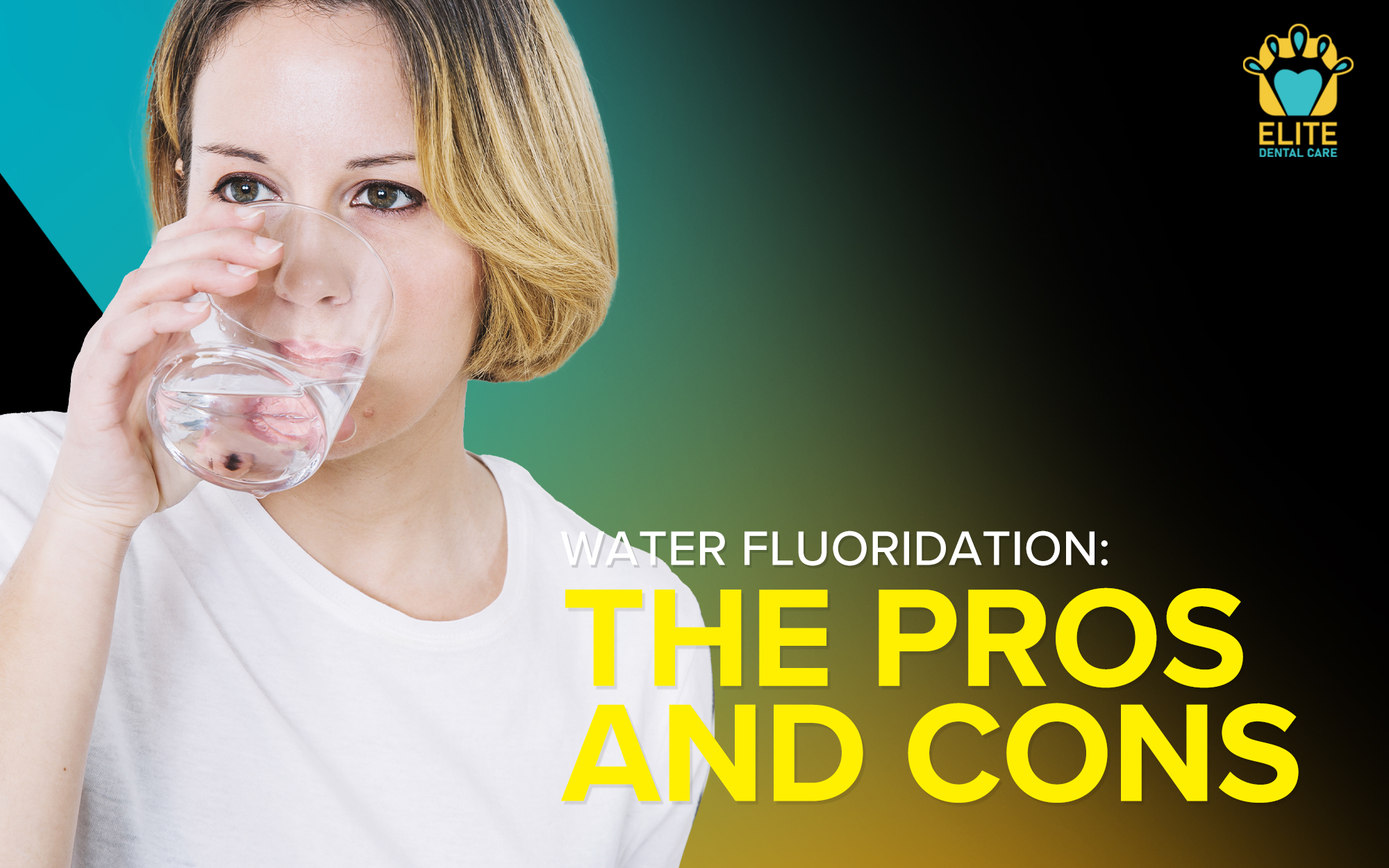
dentaldental caredental healthelitedental
edental
20 April 2024
Water Fluoridation: The Pros and Cons
In the United States, in the early 50s, fluoride was being added to public drinking water to prevent tooth decay or cavities. It is advocated even today by the Centers for Disease Control and Prevention (CDC), the American Dental Association (ADA), and other public health bodies in the US.
Pros
Given this, the US Department of Health and Human Services (HHS) has made a recommendation of adding a maximum level of 0.7 mg of fluoride per liter to maximize the benefits of public health to prevent tooth decay and to reduce drastically the likelihood of health issues, including dental fluorosis.
Cons
However, recent studies have shown that increased water fluoridation can have an adverse impact on the health of the country’s populace by causing dental fluorosis or bone weakness, mental impairment, uterine cancer, hypothyroidism, and other issues.
Certain health groups are still putting pressure on utilities to halt the addition of fluoride to water completely. They opine that since toothpaste and other topical products, which are fluoridated, have proven to be effective, there is no need for fluoridation of water.
Conclusion
Despite all the arguments against water fluoridation, since 1945 when water was first fluoridated in Great Rapids, Michigan, although cavities are one of childhood’s most common long-lasting diseases, dental well-being across the United States has reportedly improved significantly.




